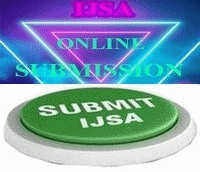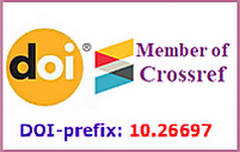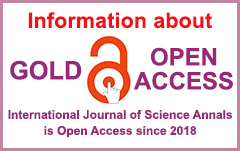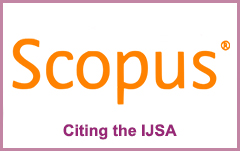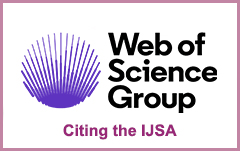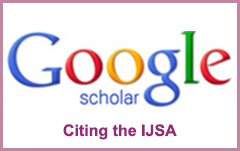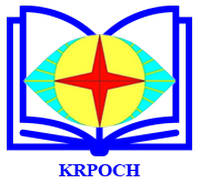| 1 Belarusian State Economic University, Belarus |
Abstract
The European “ecosystem” of higher education seems to have been affected by the global pandemic in a number of ways. Some of these impacts may well be viewed as negative; some others, as giving a new impetus to the development of the entire educational system. It is evident, for instance, that the dire necessity to “go virtual” has created new avenues for the intensification of contacts between educators who previously were less motivated to do so (Magomedov et al. 2020, Melnyk et al., 2020).
That clearly manifests the fact that the ongoing process of transformations taking place in national higher education systems across Europe has not slowed down at all, which has made some of the current cultural and educational challenges even more pressing. One such challenge is the necessity to effectively use ELF (English as a lingua franca).
Researchers working in post-communist countries have made valuable contributions to linguistic studies, especially in the area of EFL studies, as these countries clearly belong to the so-called Expanding Circle. However, the social and cultural realities of today call for more focus not on EFL studies but on research in the field of ELF and ESP (English for Specific Purposes). It is explained by the fact that the ability to use ESP is now a highly desirable skill for the majority of professionals working in the post-communist part of Europe.
Barančicová, J., & Zerzová, J. (2015). English as a lingua franca used at international meetings. JoLaCe Journal of Language and Cultural Education, 3(3), 30–51. https://doi.org/10.1515/jolace-2015-0018
Cogo, A. (2016). English as a Lingua Franca in Europe. In A. Linn (Ed.), Investigating English in Europe: Contexts and Agendas (pp. 79–89). De Gruyter Mouton. https://doi.org/10.1515/9781614518952-014
Hiver, P., & Al-Hoorie, A. H. (2016). A dynamic ensemble for second language research: Putting complexity into practice. The Modern Language Journal, 100(4), 741–756. https://doi.org/10.1111/modl.12347
Jenkins, J. (2009). English as a Lingua Franca: interpretations and attitudes. World Englishes. 28(2), 200–207. https://doi.org/10.1111/j.1467-971X.2009.01582.x
Magomedov, I. A., Khaliev, M.S-U., & Khubolov, S. M. (2020). The negative and positive impact of the pandemic on education. Journal of Physics: Conference Series, 1691, 012134. https://doi.org/10.1088/1742-6596/1691/1/012134
Mammadova, T. (2020). Exploring English language teaching in post-soviet era countries perspectives from Azerbaijan. Routledge.
Maslov, Y. V. (2005). Poetic impulse as means to produce healthier communication in English. Prace Naukowe Akademii im. Jana Dlugosza w Czestohowie: Kultura Fizyczna, 6, 201–211.
Maslov, Y. V. (2016). Foreign-language training at tertiary level: In search for “Principled eclecticism”. Visnyk Chernihivskoho natsionalnoho pedahohichnoho universytetu – Bulletin of Chernihiv National Pedagogical University, 141, 117–120. https://nbuv.gov.ua/UJRN/VchdpuP_2016_141_29
Melnyk, Yu. B., Pypenko, I. S., & Maslov, Y. V. (2020). COVID-19 pandemic as a factor revolutionizing the industry of higher education. Rupkatha Journal on Interdisciplinary Studies in Humanities, 12(5). https://doi.org/10.21659/rupkatha.v12n5.rioc1s19n2
Maslov Yury Vsevolodovich – https://orcid.org/0000-0002-5715-6546;
| |
Maslov, Y. V. (2021). A topical methodology research subject in the European area of higher education: ELF, EFL or ESP? International Journal of Science Annals, 4(1), 43–44. https://doi.org/10.26697/ijsa.2021.1.6APA
Harvard
Maslov, Y., 2021. "A Topical Methodology Research Subject in the European Area of Higher Education: ELF, EFL or ESP?". International Journal of Science Annals, [online] 4(1), pp. 43–44. viewed 30 June 2021, https://culturehealth.org/ijsa_archive/ijsa.2021.1.6.pdfVancouver
Maslov Y. A Topical Methodology Research Subject in the European Area of Higher Education: ELF, EFL or ESP?. International Journal of Science Annals [Internet]. 2021 [cited 30 June 2021]; 4(1): 43–44. Available from: https://culturehealth.org/ijsa_archive/ijsa.2021.1.6.pdf https://doi.org/10.26697/ijsa.2021.1.6




